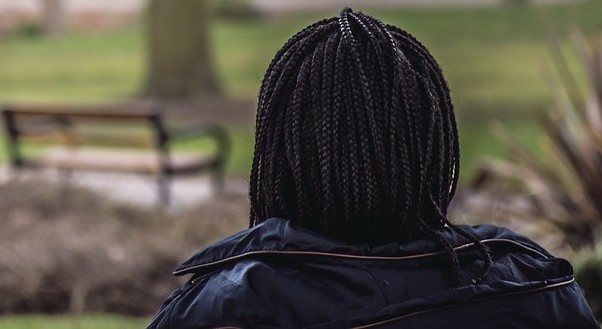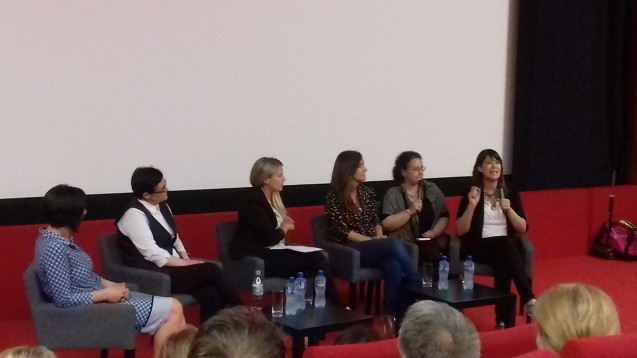
Zena
“Zena”, a woman Ruhama has supported, tells her story – from being trafficked into Ireland to moving into a new...
read more
The Light House Cinema in Dublin showed a special screening last night of a film examining the reality of sex trafficking in South America. “Chicas Nuevas 24 Horas”, a documentary from Spanish filmmaker Mabel Lozano, tells the stories of women and girls from various countries in South America who were trafficked for sexual exploitation within their countries, to neighbouring countries, and even as far as Europe.
This powerful film leaves a lasting impression, with the voices of the survivors at its heart. Hearing directly from women and girls who have been trafficked is crucial to our understanding of the brutality and inhumanity of the trade in human beings. Their stories, each unique to the individual and yet resonating with familiarity, illustrate the conditions for vulnerability to trafficking, the ruthless methods of traffickers in targeting and enslaving their victims, and the enduring damage from which survivors struggle to recover over many years.
Some of these stories reflect the particular characteristics of their setting. The extractive industries are infamous for the attendant sex trade they foster due to the high demand for prostitution among male workers in mines and quarries worldwide. For traffickers in Peru, there is a fortune to be made from trafficking girls to the gold mines where workers will pay 120 euro to have sex with a young girl who has never had sex before. The market for sex there favours ever-younger and newer girls as the workers don’t want to risk exposure to STDs from women who have spent a longer time in the sex trade. This creates a strong demand for a steady supply of children.
Other elements of these women and girls’ experiences are almost universal for trafficking victims. Publishing “job” adverts in newspapers and online to trick young women with the promise of lucrative employment is a device used by traffickers around the world. The violence and threats used against women and girls once they are under the control of their traffickers is another fundamental aspect of trafficking, with pimps and madams threatening their victims with beatings, rapes, and death if they fail to obey.
The film screening was followed by a panel discussion featuring the director, Mabel Lozano, Irish survivor-activist Mia de Faoite, and director of Ruhama Sarah Benson. A prominent issue in the discussion was the recently passed law in Ireland criminalising the purchase of sex and decriminalising those whose bodies are sold. It is vital for the success of this law that it is actively enforced by the Gardai, and also that the public knows it exists. Raising awareness of the fact that those who pay for sex are now criminalised must be a priority for all abolitionist activists and organisations in the coming months and years. Sarah Benson remarked that “poverty, or a history of abuse and exploitation, doesn’t make the prostitution of vulnerable women and girls inevitable, but demand does.”
The panel was unanimous in its call for greater international cooperation, not just between governments, police forces, and other authorities, but also between NGOs and civil society organisations working on the frontlines to provide services and support to women leaving and recovering from the sex trade. Links between origin and destination countries are key to ensuring women and girls aren’t re-trafficked and are given the support they need to rebuild their lives.
Mabel Lozano reflected on the lack of concern about this issue shown by governments around the world demonstrated by the fact that huge amounts of money are invested to combat illegal drug trafficking and arms trafficking while human trafficking is virtually neglected by comparison. There are many reasons for our failure to properly address this issue, among them the pervasive gender inequality present in all societies, and the lack of education to tackle cultural notions of a masculinity that is based on sexual “conquests”, the objectification of women, and a male identity based on aggression and domination.
This event was hosted by the Immigrant Council of Ireland and Ruhama and was well attended. It was particularly encouraging for APT members to see men present, though still outnumbered by women. Sex trafficking, like many kinds of violence against women, is often seen as “women’s issue” but in reality it is men who make the huge profits from this exploitation, and men who perpetuate it when they pay for sexual access to a woman’s or a girl’s body. This is also a men’s issue, and it won’t be dealt with until men own that fact.